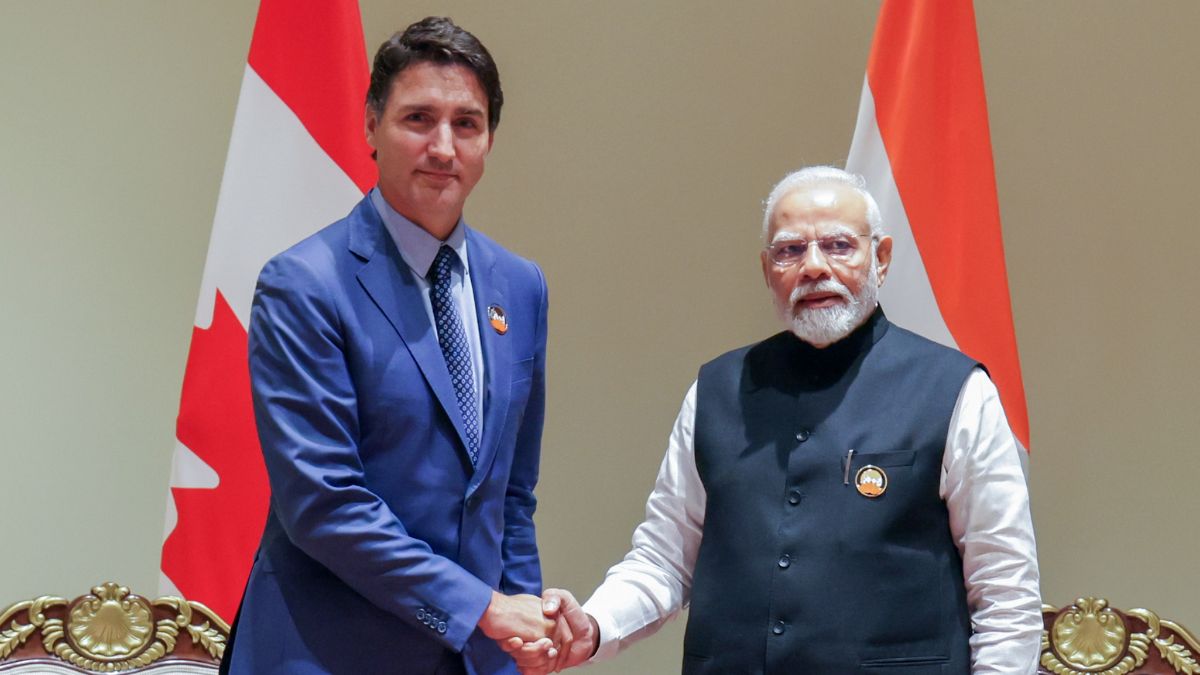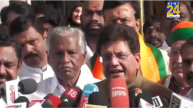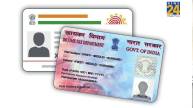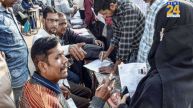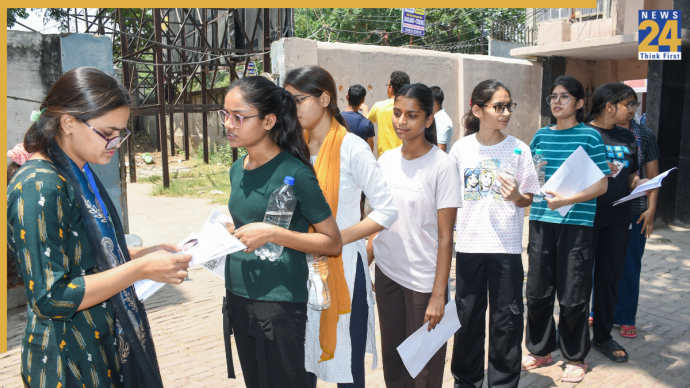The conflict between India and Canada has again fueled after Canada’s recent move where it named Indian High Commissioner Sanjay Kumar Verma and other Indian diplomats as a ‘persons of interest’ in the investigation over killing of Khalistan terrorist Hardeep Singh Nijjar. Indian government called these allegations as ‘ludicrous’ and said that it deserve to be treated with contempt.
In its press release, MEA made it clear that they don’t have faith in the current Canadian government. MEA said, “We have no faith in the current Canadian Government’s commitment to ensure their security. Therefore, the Government of India has decided to withdraw the High Commissioner and other targeted diplomats and officials.”
MEA stated, “Prime Minister Trudeau’s hostility to India has long been in evidence. In 2018, his visit to India, which was aimed at currying favour with a vote bank, rebounded to his discomfort. His Cabinet has included individuals who have openly associated with an extremist and separatist agenda regarding India. His naked interference in Indian internal politics in December 2020 showed how far he was willing to go in this regard. That his Government was dependent on a political party, whose leader openly espouses a separatist ideology vis-à-vis India, only aggravated matters.”
How Did The Conflict Start?
Notably, Canadian Prime Minister Justin Trudeau had made certain allegations in September 2023, in the Canadian Parliament. Trudeau had claimed of a “potential link” between Indian government agents and the killing of Khalistani leader Hardeep Singh Nijjar in June. He had told that security agencies of Canada “have been actively pursuing credible allegations of a potential link between agents of the Government of India and the killing of a Canadian citizen, Hardeep Singh Nijjar.” He added, “The protection of our citizens and defence of our sovereignty are fundamental.”
After Trudeau’s statement, Canada foreign minister Mélanie Joly had expelled Indian diplomat Pavan Kumar Rai, who was the head of India’s Research and Analysis Wing (RAW) in Canada.
The expulsion of top Indian Diplomat by Canadian government had led to tensions in diplomatic ties between India and Canada.
Refuting the allegations made by Canada PM, EAM S Jaishankar had said, “Our biggest problem right now is in Canada. Because in Canada, actually, today the party in power in Canada, and other parties in Canada have given these kinds of extremism, separatism, and advocates of violence a certain legitimacy in the name of free speech. See, when you tell them something, their answer is no, we are a democratic country but it is free speech.
Indian government had earlier called that statement of PM Trudeau as ‘absurd and motivated’ and rejected the claims made by Canadian government.
The MEA said, “We have seen and reject the statement of the Canadian Prime Minister in their Parliament, as also the statement by their Foreign Minister.”
Who Was Hardeep Singh Nijjar?
Born on 11 October 1977, Hardeep Singh Nijjar was a Canadian Sikh. Reportedly, he was involved with the Khalistan movement. Nijjar was born in India but migrated to Canada in the mid-1990s.
Several Sikh organizations viewed Nijjar as a human rights activist, while the Indian government labelled him as a terrorist affiliated with the militant Khalistan Tiger Force, and sought his arrest.
Nijjar was shot and killed in the parking lot of a Gurdwara in British Columbia on 18 June 2023.
His name was included in a list released by the Indian government. He was accused of being the “mastermind” behind the Khalistan Tiger Force (KTF), which was banned by the Indian government on February 2023.
Canada PM Justin Trudeau’s Allegation
Taking cognizance of Nijjar’s death, Canada PM Justin Trudeau on September 2023 stated that Canadian intelligence agencies were “pursuing credible allegations of a potential link” between Indian government agents and the assassination of Hardeep Singh Nijjar.
Investigation by a Canadian newspaper, revealed that “Hardeep Singh Nijjar, a Khalistani terrorist, was considered a threat to the national security of Canada. His bank accounts were frozen, and he was put on Canada’s no-fly list.”
Reportedly, the Parliament of Canada had observed a moment of silence to mark the first anniversary of death of Khalistani terrorist Hardeep Singh Nijjar.
Interestingly, former Punjab CM Captain Amarinder Singh had talked about how he handed over a list of 9 terrorists to Justin Trudeau during his visit to India in 2018, but the Canadian PM chose to ignore it. This list included names of nine A-category terrorists and he had requested action against them.
Canadian PM @JustinTrudeau‘s allegations against India over the killing of a fugitive terrorist are baseless, absurd, atrocious and outrageous.
It is a classic case of pot calling the kettle black.
My take in @IndianExpresshttps://t.co/dXdABXkDRn— Capt.Amarinder Singh (@capt_amarinder) September 22, 2023
India’s Response To Canada’s Recent Move
In response, Ministry of External Affairs informed that Indian government has expelled 6 Canadian Diplomats, who have been asked to leave India by or before 11:59 PM on Saturday, October 19, 2024. MEA also summoned the Canadian Charge d’Affaires and he was told that baseless targeting of the Indian High Commissioner to Canada and other diplomats is completely unacceptable.
It also asserted that “India reserves the right to take further steps in response to the Trudeau Government’s support for extremism, violence and separatism against India.” MEA also gave account of allegations made by Canadian Prime Minister Trudeau in September 2023. It further stated the Canadian Government has not shared any evidence with the Indian government despite many requests from India’s side.
Also Read: IMD Weather Update: ‘Extremely’ Heavy Rain To Lash Tamil Nadu; Delhi’s AQI Remains Poor

